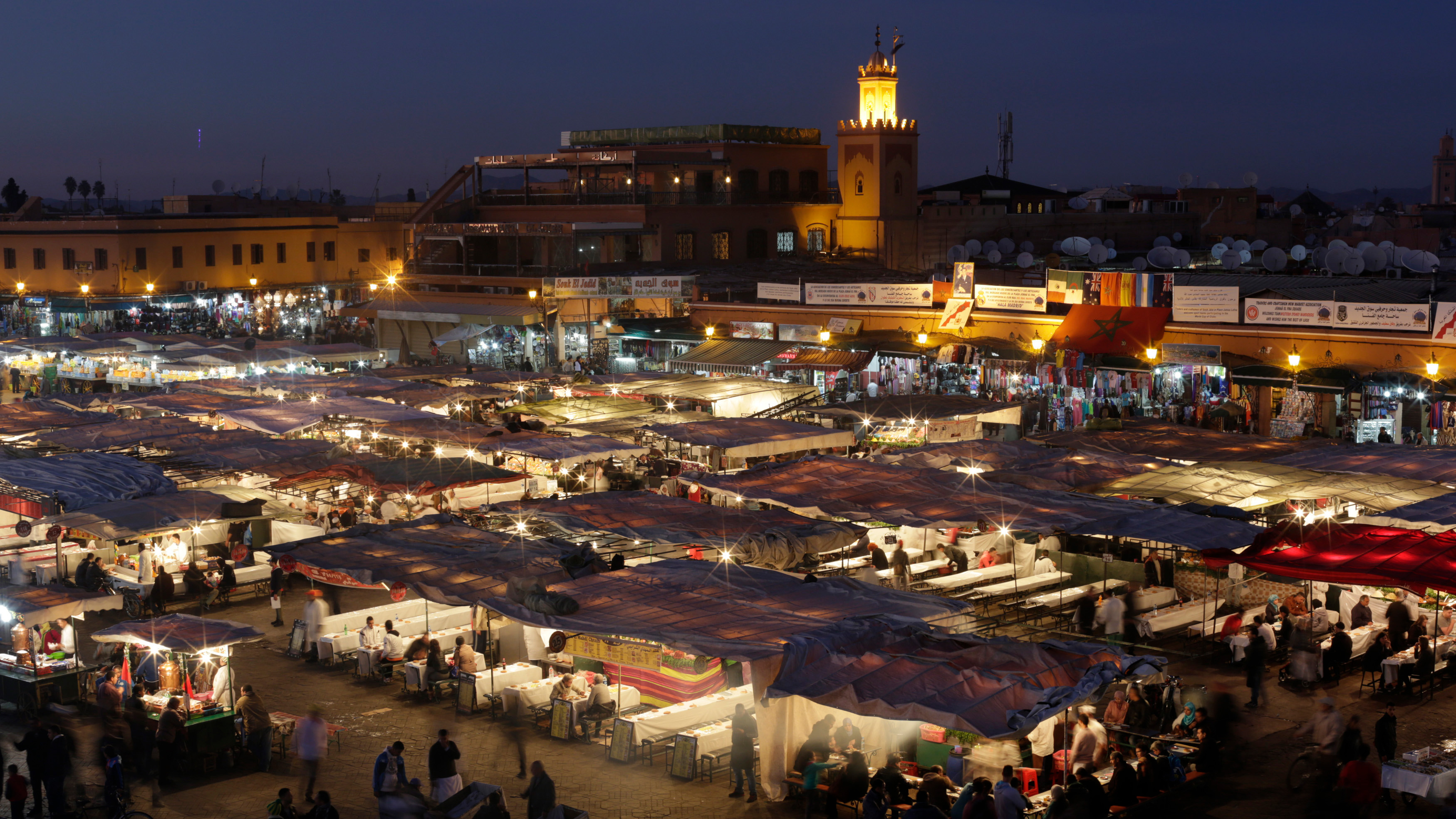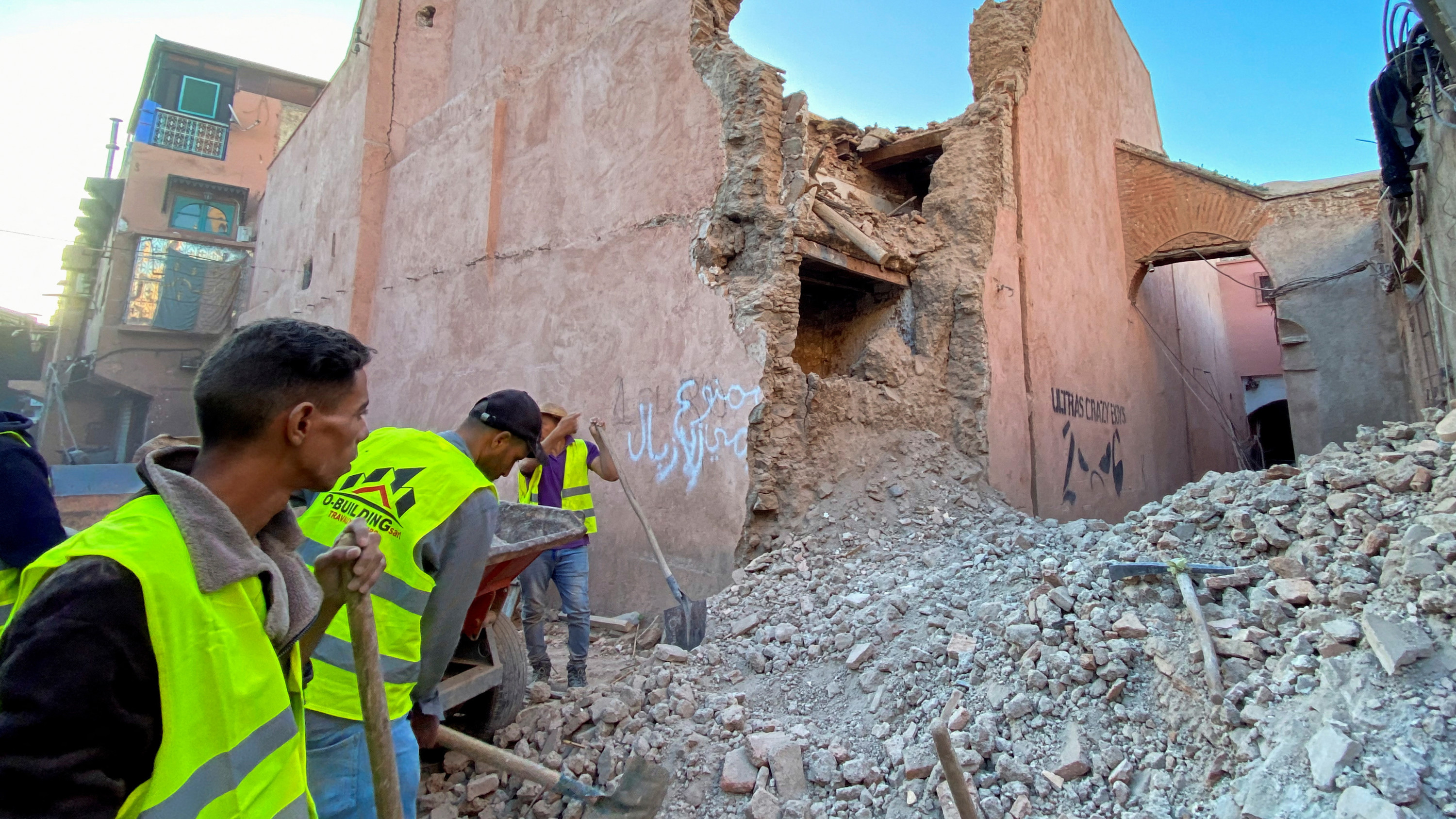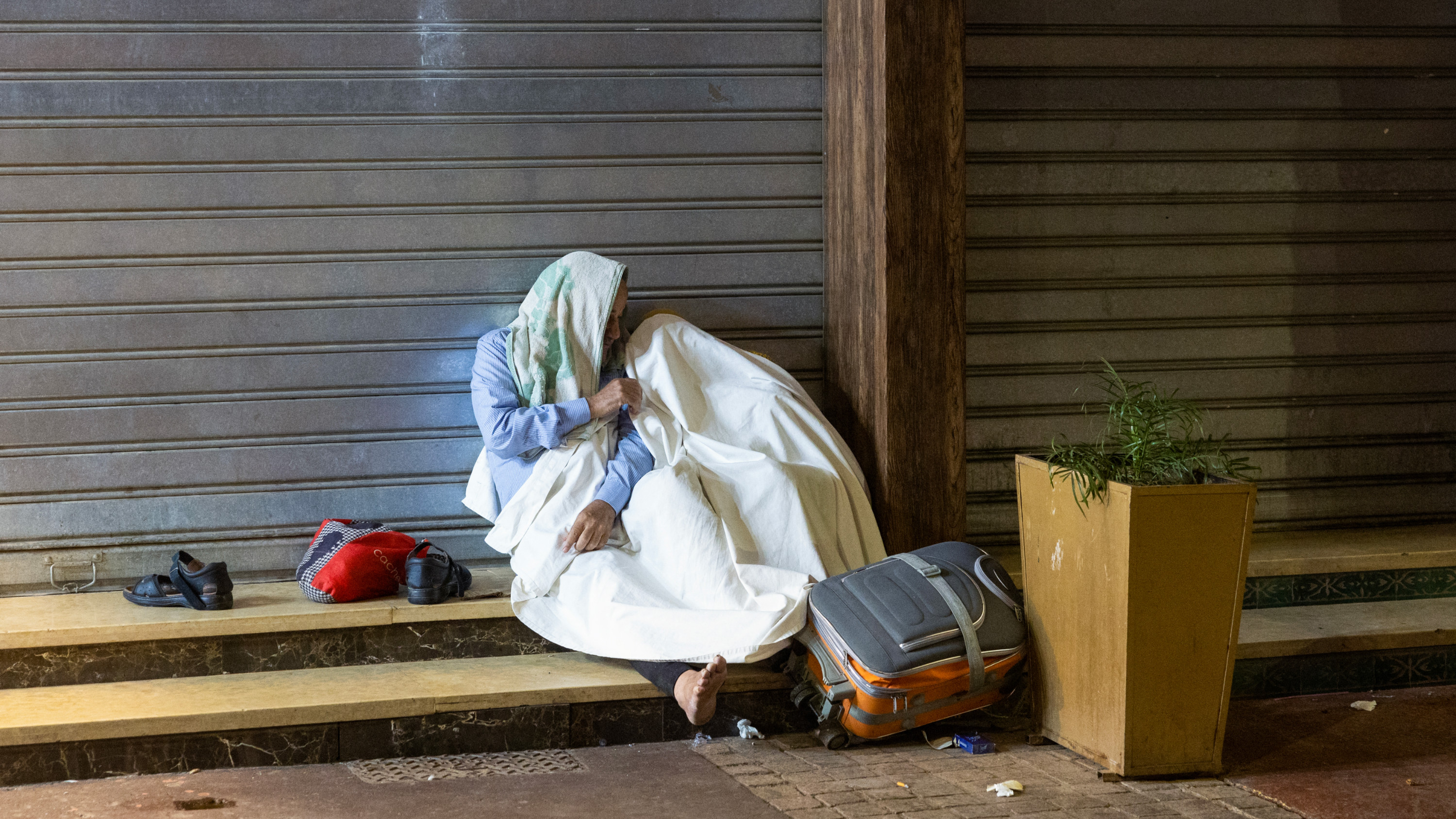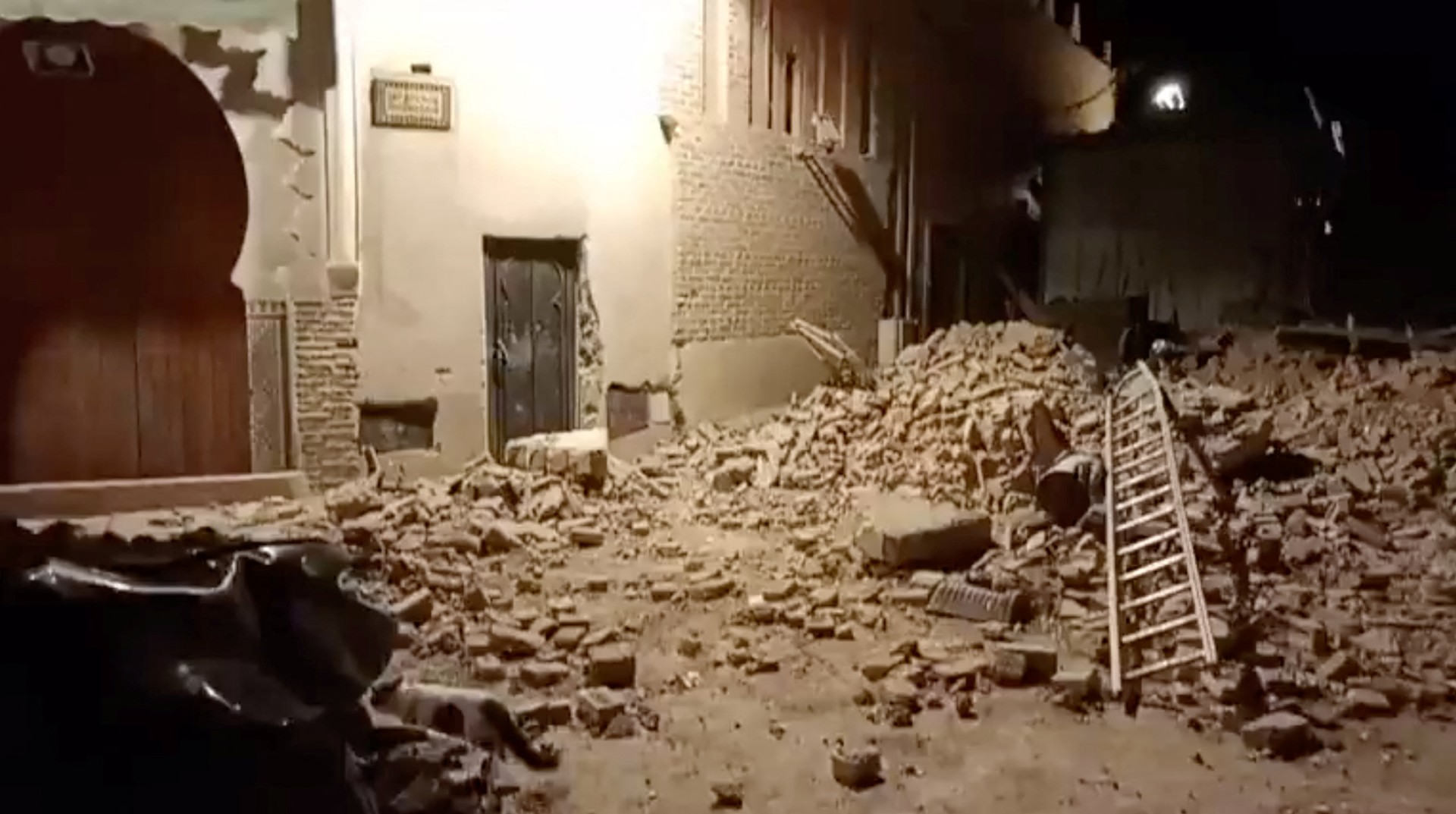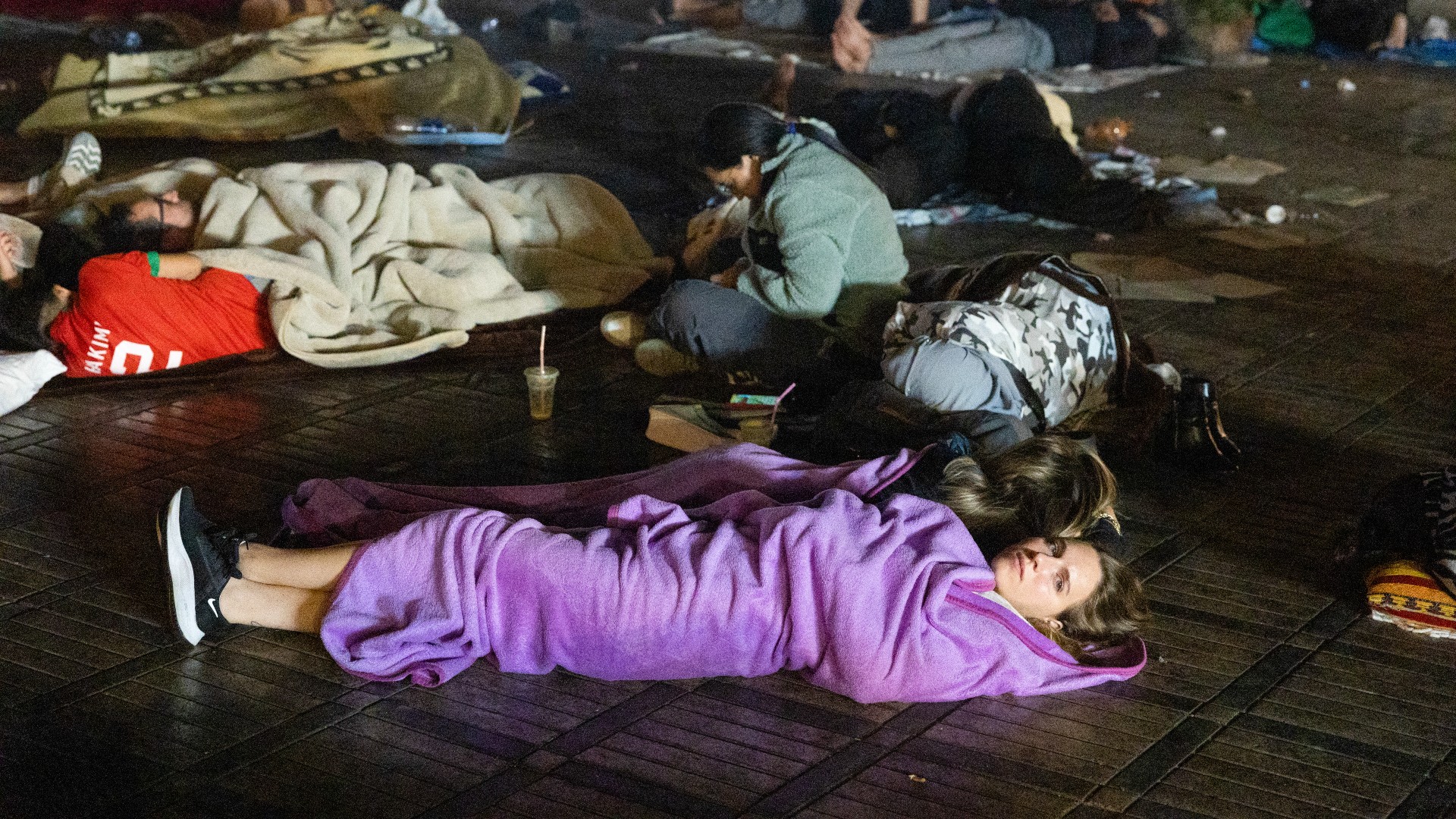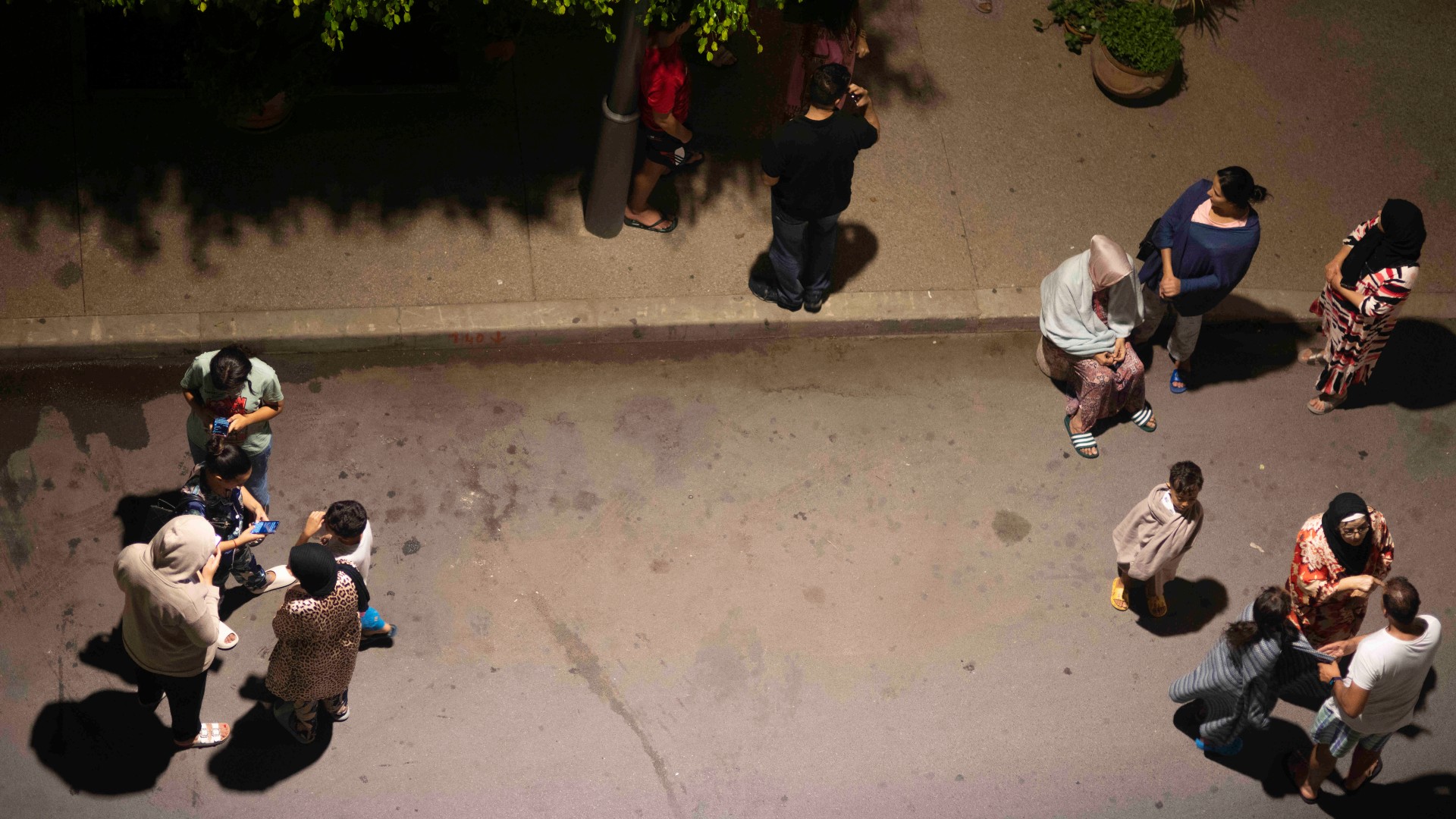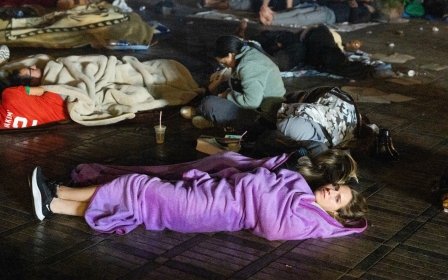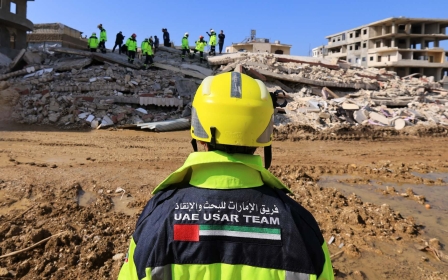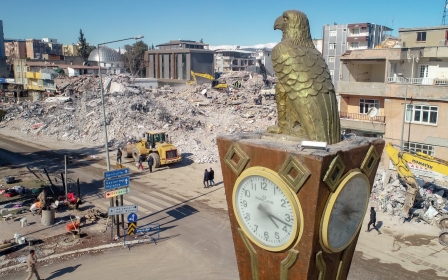Morocco earthquake live: Offers of aid flow in, but not without controversy
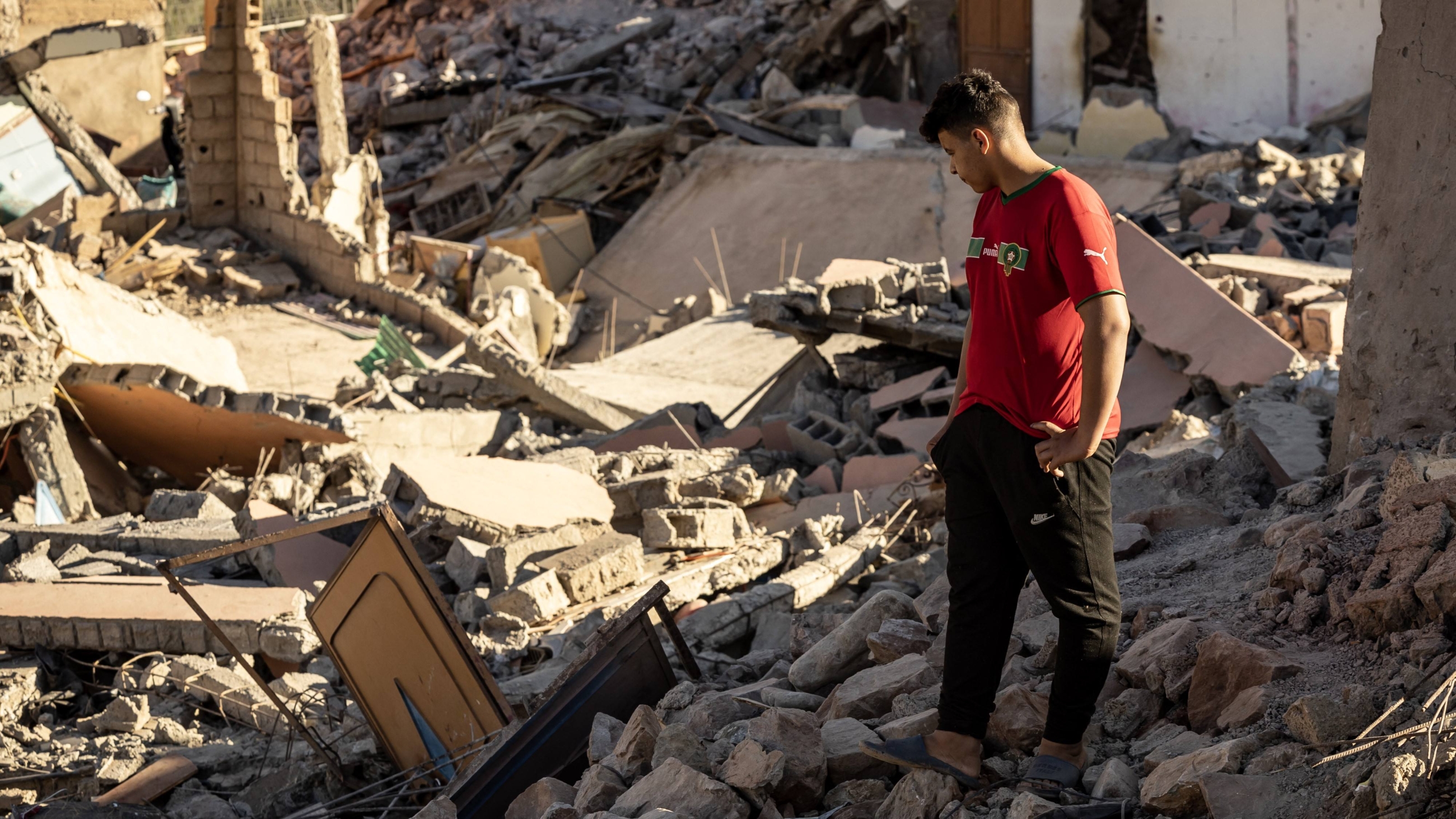
Mises à jour du direct
The World Health Organisation (WHO) said the earthquake has affected at least 300,000 people in Marrakech and surrounding areas.
In a statement made on X, formally known as Twitter, the UN body said its regional teams "are on standby to support the national response and ensure health services are quickly delivered where needed, including for trauma care".
A deadly earthquake in Morocco has damaged buildings in Marrakech's Old City and parts of its historic walls.
The extent of the damage from the quake on Friday night is not yet fully known, as the search for survivors in the Unesco world heritage site continued on Saturday.
Initial reports and social media posts indicate some buildings in the Old City had suffered heavy damage.
However, the famous medieval Kutubiyya mosque, which overlooks the Jemaa el-Fnaa square, remained intact.
The square, a famous tourist attraction packed with busy markets, street vendors and gardens, also appeared largely unaffected.
Parts of the Old City's famous red earth walls were cracked, according to state-run Al Aoula TV.
Read more: Unesco world heritage site damaged in Morocco earthquake
Heads of state from across the Middle East and North Africa offered their condolences and support to Morocco after a deadly earthquake struck the North African country on Friday night.
The United Arab Emirates's WAM state news agency said President Sheikh Mohammed bin Zayed sent a message of condolence to the Moroccan king and that UAE had instructed Emirati agencies to prepare an air bridge to deliver critical relief to Morocco.
Israeli Prime Minister Benjamin Netanyahu's office said he had sent prayers for the well-being of those affected and instructed his government to "provide assistance as necessary to the Moroccan people, including planning to send an aid delegation to the area".
Turkish President Recep Tayyip Erdogan took to X, formally known as Twitter, to show solidarity with the "Moroccan brothers".
"We will support our Moroccan brothers in every way in this difficult hour," Erdogan said.
Turkish officials have said they are ready to dispatch 265 emergency workers and 1,000 tents to Morocco, awaiting confirmation from Rabat.
Read more: How the world reacted to the Morocco earthquake
Large lines are forming outside a blood transfusion centre in Marrakech as the death toll mounts from Friday night's earthquake.
Earlier, Dr Hesham Kharmoudi from Marrakech told Al Jazeera that hospitals were running out of blood bag reserves and urged people to give blood.
"All medical personnel and departments have been prepared [for disasters]. The only problem is running out of blood bag reserves, so we call on the people to donate blood.”
At least 820 have died and 672 people injured in the powerful earthquake that struck Morocco on Friday, in the latest death toll update reported by state TV.
The powerful earthquake on Friday was the worst to hit the region in over 100 years.
Nasser Jabour, director of the country's National Institute of Geophysics, said it was "the first time in a century that the centre has recorded such a violent earthquake in Morocco".
The US Geological Survey (USGS) said earthquakes in the region are "uncommon, but not unexpected".
"Since 1900, there have been no earthquakes M6 (magnitude 6) and larger within 500km of this earthquake, and only nine M5 (magnitude 5) and larger earthquakes," USGS said.
It added that "significant damage [was] likely and the disaster is potentially widespread".
Survivors of the earthquake described scenes of panic and chaos when they felt the earth shaking around 11pm local time (10pm GMT) on Friday.
"We heard a loud noise and rumbling from the ground," Abdelhamid, an eyewitness, told Middle East Eye.
"People couldn't understand what was happening until the ground started shaking and buildings began to collapse."
The Marrakech resident said people spent the night in cars and on the streets, primarily in parking areas and large squares, avoiding large buildings.
Lina, another eyewitness, said the first 20 seconds when the earthquake hit looked like a "scene from movie".
"We were lucky to live on the top floor [fourth floor]. We couldn't even walk because the ground was shaking heavily. We ran down the stairs and then set up tents outside," she told MEE.
She added that electricity and the network were down, leaving many families unable to contact each other.
Faisal Baddour, a state engineer, told AFP that he felt the force and intensity of this earthquake almost three times in his building.
"People went out into the street just after this total panic, and there are families who are still sleeping outside because we were so scared of the force of this earthquake," Baddour said.
"It was as if a train was passing close to our houses, that's the feeling we had."
Moulay Hafid Mouddan, a civil servant, said he was taking a walk with his wife after their dinner when they felt the tremor under their feet.
"My wife thought it was a helicopter or something, but I told her it was an earthquake," Mouddan told AFP.
"Suddenly people were running in all directions in the streets."
International response to the earthquake is starting to be heard.
United Nations spokesperson Stephane Dujarric said that the UN stood ready to help the Moroccan government in "its efforts to assist the impacted population".
Narendra Modi, the prime minister of India currently hosting the G20 summit, said his country was ready to "offer all possible assistance" to Morocco.
Meanwhile Mark Rutte, prime minister of the Netherlands, said: "My thoughts are with the many victims of this disaster and with the local emergency services. I conveyed my sincere condolences to Prime Minister Aziz Akhannouch."
Moroccan state TV said the death toll has risen to 632, with 329 injured, doubling the previous number. It cited the interior ministry for the new toll.
As the epicentre of the earthquake was in a remote mountainous area, rescue teams and aid services were believed to be having difficulties responding.
So far, few images have been circulating from the scene of the earthquake, but some have begun to be released by news agencies. They show residents of Marrakech, Casablanca and Rabat sheltering on the streets as well as damage to buildings.
Footage circulating online appears to show the moment the earthquake was felt in the ancient city of Marrakech and dust billowing out of the minaret of its famous Kutubiyya Mosque.
MEE was unable to immediately verify the images.
Hello,
At around 11pm local time (10pm GMT) on Friday night a powerful earthquake struck the Ighil area of Morocco's High Atlas, some 70km from the city of Marrakech. Here's what we know so far:
- The interior ministry said at least 296 people have been killed and 153 injured. It called those tolls preliminary.
- The provinces of Al Haouz, Ouarzazate, Marrakech, Azilal, Chichaoua and Taroudant have all been hit.
- Footage shows severe damage to buildings in Marrakech, several of which are reported to have collapsed, including in the Old City.
- The quake is the deadliest one in Morocco since 2006, when tremors near al-Hoceima in the northern Rif mountains killed over 600 people.
Middle East Eye will be following the developments throughout the day.


